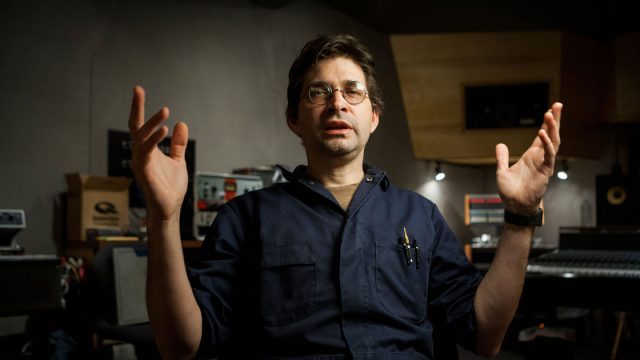Steve Albini, Nirvana, Page & Plant Producer, U.S. Alt-Rock Musician, Dies Aged 61

Steve Albini, the acclaimed vocalist, guitarist and producer who helmed a series of the most esteemed albums across the US alternative music scene, has died aged 61 from a heart attack suffered at his recording studio. Staff at his studio, Electrical Audio, confirmed the news to Pitchfork this afternoon.
As well as fronting the bands Big Black, Rapeman and Shellac, who all pushed at the boundaries of post-punk and art-rock, Albini also produced – or, to use his preferred term, engineered – albums by Nirvana, Pixies, PJ Harvey and Jimmy Page and Robert Plant. He was noted for his DIY and punk ethos, resisting streaming services and refusing to take royalties from the recordings he produced for other artists.
Albini first rose to prominence in the early 1980s as the frontman for Big Black, the Chicago-based trio known for aggressive guitar-based rock that worked with a drum machine rather than a live drummer, a rarity for the time. Yet he was also well known for his equally aggressive criticism of musicians and others who he felt were in it for money or popularity rather than the music — and he walked it like he talked it.
His uncompromising stance — and his galvanizing work on the Pixies’ landmark 1988 album Surfer Rosa — endeared him to Nirvana’s Kurt Cobain, who insisted that the band work with Albini on its second major label album, 1993’s In Utero, to the chagrin of their label, which was hoping for another mainstream rock blockbuster similar to the group’s breakthrough, Nevermind. (In Utero was still loud, but not in the radio-friendly way they’d been angling for.) Around the same time, Albini also recorded PJ Harvey’s sophomore effort Rid of Me, which had a similarly aggressive sound.
Albini also worked with acts such as Pixies, the Breeders, the Jesus Lizard, Mclusky, and even former Led Zeppelin members Jimmy Page and Robert Plant on their widely-hailed 1998 album Walking Into Clarksdale. The latter album in particular benefited from Albini’s no-frills sound, which was at odds with the duo’s elaborate latter-day recordings.
Later in the In the 1990s he formed the band Shellac, which released five studio albums over the years and was preparing for a tour later this year to support their sixth full-length release — and first in ten years — To All Trains, which is scheduled for release next week.
Albini was also the founder, owner and principal engineer at Electrical Audio, a recording studio complex in Chicago. Even now, he was still consistently taking up production gigs for a flat fee, refusing royalty payments in a show of support with his indie artists.

